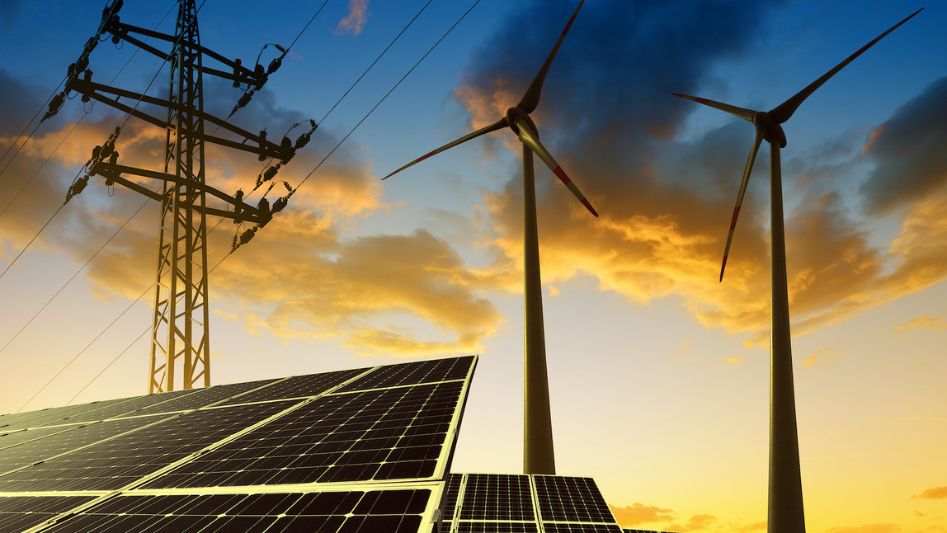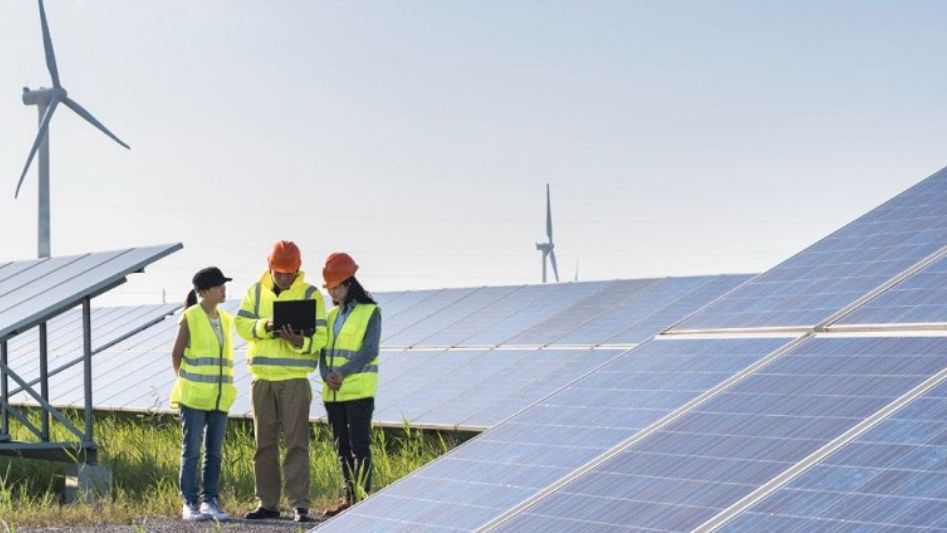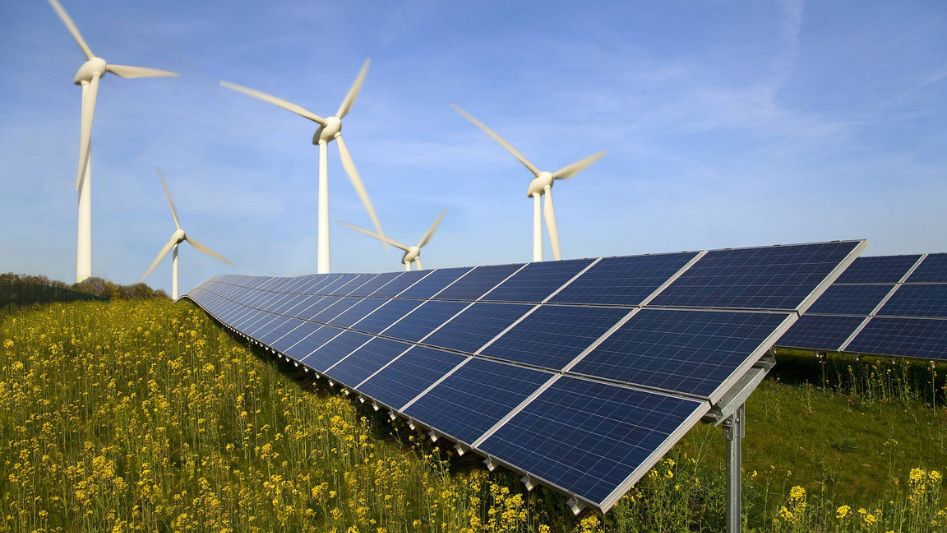In a world facing the imminent threat of climate change and dwindling natural resources, the need for energy efficiency has never been more pressing. As our global population continues to grow, so does the demand for energy. However, our current energy consumption practices are not sustainable in the long run. To combat this challenge and secure a greener and more sustainable future, it is imperative that we triple energy efficiency investments worldwide by 2030. This article explores the reasons behind this crucial endeavor and how it can shape the future of our planet for generations to come.
Table of Contents

The Urgency of Energy Efficiency Investments
Energy efficiency investments play a pivotal role in addressing the growing energy demand and environmental concerns. By improving energy efficiency, we can significantly reduce greenhouse gas emissions, mitigate climate change, and conserve precious natural resources. The urgency lies in the fact that the effects of climate change are already evident, with rising sea levels, extreme weather events, and disruptions to ecosystems. To safeguard our planet and future generations, we must act swiftly and decisively to triple energy efficiency investments worldwide.
The Economic Advantages of Energy Efficiency
Investing in energy efficiency not only benefits the environment but also presents significant economic advantages. Improved energy efficiency leads to reduced operational costs for businesses and households alike. As energy consumption decreases, so do utility bills, enabling individuals and organizations to save money. Moreover, energy-efficient technologies and practices foster innovation and create new job opportunities, driving economic growth and prosperity.
Environmental Benefits of Energy Efficiency Investments
- Mitigating Climate Change: The burning of fossil fuels for energy generation is a primary contributor to greenhouse gas emissions. By increasing energy efficiency, we can lower these emissions, curbing the pace of global warming and its associated consequences.
- Conserving Natural Resources: Energy efficiency minimizes the extraction and consumption of finite resources like coal, oil, and natural gas. This conservation ensures that future generations can also access these resources for essential needs.
- Reducing Pollution: Energy production often involves pollutants and particulate matter that harm air and water quality. Investing in energy efficiency technologies can decrease the release of harmful pollutants, leading to cleaner environments and improved public health.
Social Impact and Energy Efficiency
The impact of energy efficiency investments goes beyond environmental and economic aspects; it also significantly affects society. By promoting energy efficiency measures, we can enhance energy access and affordability for marginalized communities. This, in turn, fosters social equity and inclusivity, ensuring that all individuals have equal opportunities to thrive in a sustainable world.

Policy Interventions and Governmental Support
To triple energy efficiency investments worldwide, governments must play a crucial role. Policy interventions, such as providing incentives for energy-efficient infrastructure, enforcing energy efficiency standards, and promoting renewable energy sources, can propel the transition towards sustainability. By implementing effective policies, governments can encourage private and public entities to invest in energy efficiency, accelerating the global transition towards a greener future.
Overcoming Barriers to Energy Efficiency Investments
- Upfront Costs: One of the primary barriers to energy efficiency investments is the initial capital required to implement new technologies or upgrade existing infrastructure. However, governments and financial institutions can facilitate low-interest loans and grants to overcome this hurdle.
- Lack of Awareness: Many individuals and organizations may be unaware of the benefits of energy efficiency or the available incentives. Awareness campaigns and educational initiatives can bridge this information gap and encourage broader adoption.
- Inadequate Regulation: In some regions, the absence of robust energy efficiency regulations hinders progress. Governments can address this by establishing clear and enforceable standards that incentivize energy efficiency investments.

Conclusion
The urgent need to triple energy efficiency investments worldwide by 2030 stems from the critical challenges of climate change, depleting natural resources, and the imperative to build a sustainable future. By prioritizing energy efficiency, we can mitigate climate change, conserve resources, create economic opportunities, and foster social equity. Governments, businesses, and individuals must collaborate to overcome barriers and invest in energy-efficient technologies and practices. Together, we can shape a greener and more prosperous world for ourselves and future generations.
FAQs
What is energy efficiency?
Energy efficiency refers to using less energy to perform the same tasks or achieve the same results. It involves employing energy-saving technologies, adopting efficient practices, and minimizing energy waste.
How can energy efficiency investments benefit businesses?
Energy efficiency investments can lead to reduced operational costs for businesses through lower energy consumption. By optimizing energy use, businesses can improve their bottom line and increase their competitiveness.
How does energy efficiency contribute to reducing greenhouse gas emissions?
Energy efficiency reduces the amount of energy required for various activities, such as heating, cooling, and transportation. By decreasing energy demand, we can rely less on fossil fuel-based energy generation, which significantly lowers greenhouse gas emissions.
You May Also Like
- GREEN ENERGY AND ENERGY EFFICIENCY: WORKING TOGETHER FOR A GREENER FUTURE
- FLOATING HYDROGEN FARM: CHINA’S MILESTONE IN SHIFTING TOWARDS RENEWABLE ENERGY
- UNVEILING THE GREEN ENERGY PARADOX: ESG INVESTING’S LIMITED IMPACT ON THE TRANSITION
- A SUSTAINABLE FUTURE: HOW GREEN ENERGY IS CHANGING THE WORLD
- HARNESSING WASTE ENERGY: TURNING TRASH INTO TREASURE
External Links
- How radar sensors significantly improve the energy efficiency of the smart home
- Doubling global pace of energy efficiency progress by 2030 is key step in efforts to reach net zero emissions
- Investment Needs of USD 35 trillion by 2030 for Successful Energy Transition
- Energy 2030
- GLOBAL ENERGY TRANSFORMATION
